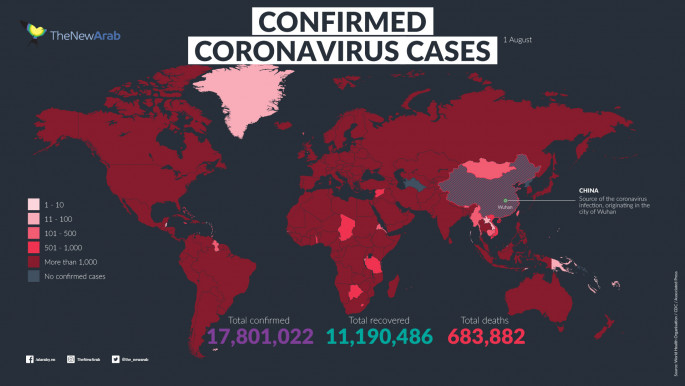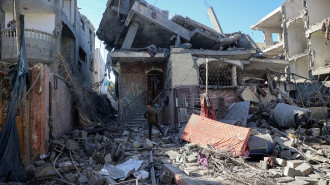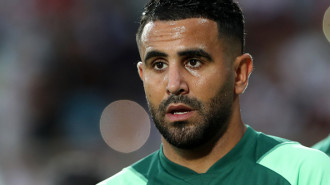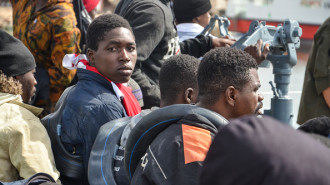Gay men outed by transgender woman online come under immediate abuse in Morocco
Gay men outed by transgender woman online come under immediate abuse in Morocco
Gay men in Morocco are facing abuse and homelessness after being kicked out by family members following a targeted abuse campaign to 'out' their dating app profiles.
4 min read
One gay man killed himself due to the abuse he received [Getty]
Gay men are being abused in Morocco after they were “outed” without their consent after a popular transgender social media influencer encouraged women in Morocco to set up fake accounts on gay chat apps.
Photos of between 50 and 100 men spread across social media in the last two weeks, after the men were identified on location-based meeting apps whilst they were in quarantine at home over the novel coronavirus lockdown.
Sofia Taloni, a transgender model used an Instagram Live to encourage people to infiltrate the apps, saying they would discover how many men used the platforms, including potentially “their husbands and brothers” after she was angered online.
A 22-year-old called Yassine was picked to join Taloni, also called Naoufal Moussa on Instagram live, and he told The New York Times that Moussa pushed Yassine to admit he was gay, and threatened to post revealing photos showing him with another gay man.
“I was shocked and then very scared,” Yassine told the Times. “She destroyed my life.”
“Everybody is sending the video and saying bad things about me,” he said.
“My mum, also, she’s very sad. She’s not talking to me anymore. My friends at the gym, friends I went to school with — they all blocked me.”
Subsequently, other men say that they were blackmailed, threatened, and in the case of at least three, they were kicked out of their homes by their parents due to people forcibly “outing” them, human rights groups say.
In one case, a man had been homeless for at least three days, putting him at risk of contracting Covid-19.
Homosexuality and sex outside of marriage is illegal in Morocco, and as a result the gay community are forced o remain underground, with many keeping their sexuality a secret from family, friends and co-workers.
“The consequences of ‘outing’ can be detrimental to LGBTQ people’s livelihoods, safety, and mental health,” said Graeme Reid, lesbian, gay, bisexual, and transgender (LGBT) rights director at Human Rights Watch.
“The Moroccan authorities should immediately step in to protect LGBT people’s privacy and repeal anti-LGBT laws that can only fuel this homophobic behaviour.”
Article 489 of the penal code punishes same-sex relations with prison terms of up to three years, and fines of up to 1,000 dirhams (US$104).
|
A 23-year-old gay university student told Human Rights Watch that his brother learned of his sexual orientation when he was “outed” online and kicked him out of the house: “I have been sleeping on the street for three days and I have nowhere to go.
“Because of the Covid-19 pandemic, not even my close friends are able to host me,” he said, adding that he fears for his safety if he tries to return to his brother’s house.
A representative of one of the dating apps involved told Human Rights Watch that the initiative has sent out messages to users in both French and the Moroccan dialect of Arabic warning them of the rash of “outings” and providing the phone number of a hotline where they can seek legal and/or psychological help.
In one case, a student who returned from France during lockdown killed himself after being identified as gay, Moroccan media reported.
Read More: Coronavirus: Lebanon's LGBT+ community is locked down and unprotected
Many men in the religiously conservative country have expressed fear of being found out and abused by family members during lockdown.
Samir el Mouti, who runs a Facebook group called The Moroccan LGBT Community, which offers support to LGBTQ people in the country, told BBC that the number of people contacting the group and reporting abuse has increased since the online hate campaign.
Victims of abuse and harassment of this kind are not supported by law enforcement as the law does not have protections for LGBTQ people, activists said.
"The law is not on their side - that makes the situation dangerous because people cannot report crimes to the police and ask for protection," Mouti added.
One man contacted the Facebook group to say he feels like "a dead man"."I'm in great trouble. Everyone knows now that I'm homosexual, and my neighbour sexually harassed me, so I decided to flee," he told the group.
"I have nowhere to go - especially during lockdown."
In later videos, Taloni said her aim was the reveal the hypocrisy of Moroccan society.
Facebook, which owns Instagram, has suspended Ms Taloni's account and the company told Reuters it was "taking proactive steps to find and remove other content like this".
 |







 Follow the Middle East's top stories in English at The New Arab on Google News
Follow the Middle East's top stories in English at The New Arab on Google News


